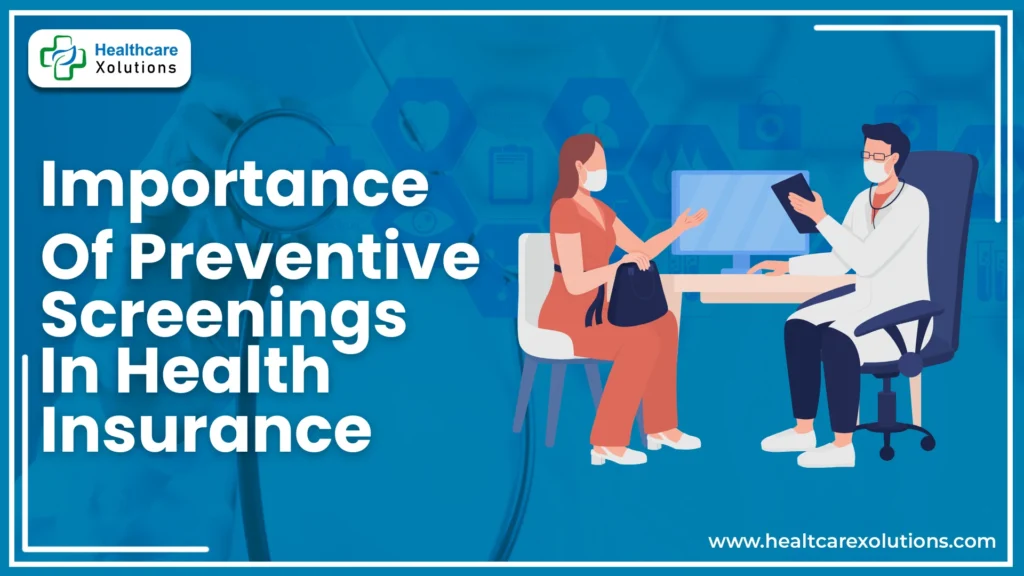Importance of Preventive Screenings In Health Insurance Plans 2025

Preventive screenings are essential for early disease detection, reducing healthcare costs, and improving overall well-being. Health insurance plans that include preventive care empower individuals to maintain their health while preventing costly medical treatments. By integrating these screenings, insurers enhance public health and reduce the strain on healthcare systems.
Key Takeaways:
- Preventive screenings detect diseases early, lowering healthcare costs and improving outcomes.
- Health insurance coverage for preventive care encourages early intervention.
- Awareness gaps, access issues, and insurance coverage variability remain challenges.
- Expanding coverage and increasing awareness can improve preventive healthcare adoption.
Table of Contents
Understanding Preventive Screenings:
Preventive screenings involve medical tests that identify diseases or risk factors before symptoms appear. Common screenings include:
- Blood Pressure and Cholesterol Checks: Helps prevent heart disease and strokes.
- Diabetes Screenings: Detects prediabetes or diabetes for early intervention.
- Cancer Screenings: Mammograms, Pap smears, colonoscopies, and prostate exams identify cancer early.
- Immunizations: Protect against diseases like flu, hepatitis, and pneumonia.
- Mental Health Screenings: Detects conditions like depression and anxiety early.
The Role of Health Insurance In Preventive Care:
Health insurance policies covering preventive screenings encourage early medical intervention without financial strain. Many insurers include preventive care due to its cost-saving benefits and improved patient outcomes.
What Is Covered Under Preventive Care?
The Affordable Care Act (ACA) mandates that most health plans cover preventive care services, including:
- Annual check-ups and routine screenings
- Immunizations for children and adults
- Cancer screenings like mammograms and colonoscopies
- Diabetes and cholesterol tests
Coverage varies by insurance provider. What is considered preventive care for insurance depends on the plan. Blue Cross Blue Shield preventive care coverage includes essential screenings, but benefits may differ by state.
Key Benefits Of Preventive Screenings In Health Insurance Plans:
1. Lower Healthcare Costs:
Early disease detection reduces the need for expensive treatments. Managing conditions in their early stages is far more cost-effective than treating advanced illnesses.
2. Improved Health Outcomes:
Preventive care increases the likelihood of successful treatment. For instance, diagnosing cancer at Stage 1 significantly improves survival rates compared to later stages.
3. Reduced Strain on Healthcare Systems:
Preventing severe medical conditions results in fewer hospitalizations and emergency visits, allowing better allocation of healthcare resources.
4. Enhanced Quality of Life:
Individuals who undergo regular screenings enjoy better health, leading to longer and more productive lives.
Challenges In Preventive Screenings Adoption:
Despite the benefits, several challenges exist:
- Lack of Awareness: Many people don’t prioritize preventive screenings due to limited knowledge.
- Limited Access: Rural and underserved areas may lack screening facilities.
- Insurance Variability: Coverage differences among providers create disparities in access.
Encouraging Preventive Screenings:
To maximize benefits, insurers, policymakers, and healthcare providers should:
- Increase Awareness: Educate the public on preventive care’s importance.
- Expand Coverage: Ensure all essential screenings are included in insurance plans.
- Improve Accessibility: Offer screening programs in remote areas.
Conclusion:
Preventive screenings are vital in reducing healthcare costs and improving long-term health outcomes. Ensuring health insurance plans provide comprehensive preventive care fosters a proactive approach to well-being. By increasing accessibility and awareness, insurers and policymakers can promote a healthier society.
FAQs:
How often should I get preventive screenings?
Screening frequency depends on age, gender, and medical history. A doctor can provide personalized recommendations.
What happens if a screening detects a health issue?
Your doctor may recommend further tests or treatments based on the findings.
How can I find out which preventive screenings I need?
Consult your primary care physician for personalized screening recommendations.
